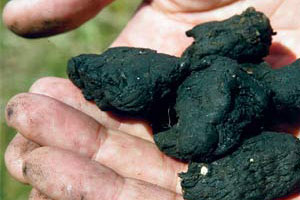WHY DO AMERICANS BURN AND BURY more than twice as much waste as we recycle? Sometimes the reason is geographic (no curbside program or local drop-off center) and sometimes economic (no nearby markets for recyclable materials). But frequently the reason is bureaucratic inertia—civil servants who are simply used to hiring one company to haul it all away and put it in a hole in the ground. Thanks to subsidies, tax credits, and other federal supports, it’s cheaper to build a dump or an incinerator than recycling or composting facilities. And the giant haulers make sure it stays that way: Waste Management, Inc., which controls 24 percent of the North American trash disposal industry, spent $840 million last year on lobbying and in 2007 signed up Rudy Giuliani’s firm. (The company’s record through the decades makes for entertaining reading, replete with accusations of fraud, racketeering, and, back in the 1980s, a scam that involved diluting PCB-laced toxic waste and selling it as fuel and asphalt coating.)
Sure, Waste Management offers recycling; its customers increasingly demand it. But megahaulers make less money off recycling than landfilling, says Neil Seldman of the Institute for Local Self-Reliance. And they typically send recyclables to centralized, highly mechanized facilities that, according to industry data, turn out low-quality materials with up to 30 percent contaminants.
Municipalities can liberate their waste from the garbage monopolies—by building their own composting facilities and “resource recovery parks.” That creates jobs, stimulates local economies, curbs emissions of methane from landfills, and conserves energy. (Recycled plastic requires 80 percent less energy to produce than virgin plastic; recycled aluminum takes 95 percent less energy, and paper 64 percent less.) The Big Island of Hawaii has embraced this idea, recently canceling plans for a new incinerator. Wood and other yard waste are composted, providing much-needed topsoil. Fats, oils, and grease (known in the biz as FOG) are for biofuel conversion. The island is also working to establish drop-off repair centers for reusable items and to help local industries reuse materials that are currently shipped off island for recycling.
States can also adopt legislation requiring manufacturers to take responsibility for their products, especially toxic materials like e-waste. But what we really need is for the federal government to end subsidies for the extraction of raw materials (metals, timber, oil and gas), which put recycling at a competitive disadvantage. Setting nationwide minimum-recycled-content laws would strengthen markets for recyclables. And what about banning the burial of anything that has the potential to generate methane—a potent greenhouse gas? Every town would have a composting program in no time.
















